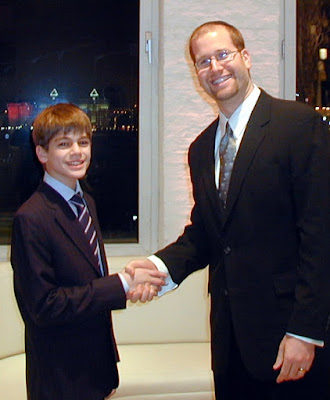Another exciting professional baseball season has come to an end. The World Series showed us that the champion can come from behind. And the playful nature of the Washington Nationals, particularly watching grown men sing “Baby Shark,” showed us that there is joy to be found in the game itself.
For me, one of the clearest experiences of relationship building through sports is as a three-time participant, multi-year host family, coach, and parent for JCC Maccabi Games. I have seen the myriad of ways that the JCC Maccabi experience promotes Jewish engagement for young people. Using sports competition as its hook for Jewish teens, JCC Association of North America, through JCC Maccabi, offers real relationship building, which was demonstrated to me this year.
This summer, the Metro Detroit Jewish community hosted the JCC Maccabi Games and by all accounts, it was a very successful weeklong event. As coach of Detroit’s 16U baseball team, I can attest to the fact that while neither team boasted winning records, their players left the games with wonderful memories and a life lesson about camaraderie and sportsmanship.
After our team was eliminated from the tournament, I led our boys to the bus back to the Jewish Community Center. As fate would have it, we would be sharing the bus with Boston’s 16U baseball team and the bus hadn’t yet arrived. As we waited in the hot sun, I met the Boston coach, Aidan Arnold. I already knew three of his players since I was hosting them in my home for the week.
For me, one of the clearest experiences of relationship building through sports is as a three-time participant, multi-year host family, coach, and parent for JCC Maccabi Games. I have seen the myriad of ways that the JCC Maccabi experience promotes Jewish engagement for young people. Using sports competition as its hook for Jewish teens, JCC Association of North America, through JCC Maccabi, offers real relationship building, which was demonstrated to me this year.
 |
| Players from the Detroit and Boston baseball teams at the 2019 JCC Maccabi Games |
This summer, the Metro Detroit Jewish community hosted the JCC Maccabi Games and by all accounts, it was a very successful weeklong event. As coach of Detroit’s 16U baseball team, I can attest to the fact that while neither team boasted winning records, their players left the games with wonderful memories and a life lesson about camaraderie and sportsmanship.
After our team was eliminated from the tournament, I led our boys to the bus back to the Jewish Community Center. As fate would have it, we would be sharing the bus with Boston’s 16U baseball team and the bus hadn’t yet arrived. As we waited in the hot sun, I met the Boston coach, Aidan Arnold. I already knew three of his players since I was hosting them in my home for the week.









